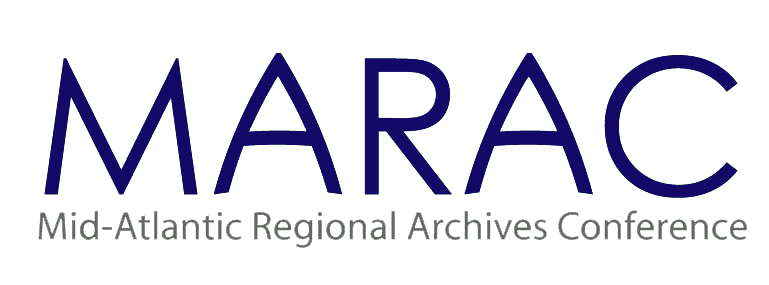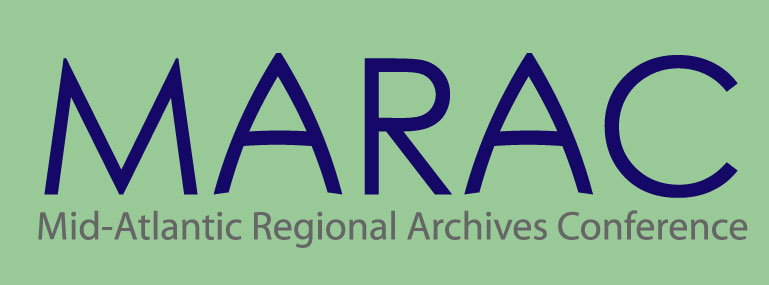Webinars & Workshops
The following formats, Occasional Lecture Series and Workshops, are regularly organized and offered by the MARAC Education Committee. Workshops and other educational programming are offered online via Zoom, in person, and the day before in-person conferences. Other educational proposals are welcome and will be considered – they do not need to fit into the proposed structure. Proposals for new educational offerings are always welcome!
The Education Committee follows the MARAC Privacy and Confidentiality Policy for all communications with instructors and participants.
Upcoming Events
Title: Right To Be Virtual Training: "Resilience: This Moment and Beyond”
Date: Friday, April 26, 2024
Time: 10:00 – 11:30 am ET
Venue: Zoom
Cost: $30
Register online at Right to Be Virtual Training by April 25, 2024
This interactive and experiential learning experience will teach you how to author your own resilience, using Right To Be’s resilience methodology: sit with what is, create your story, and be in choice. We’ll talk about what resilience really is, and how it’s different (and harder) than self-care. Using guided practices, we’ll learn how to hold our pain and still find joy.
We’ll explore how we’re making sense of this moment — and how that’s shaping our experience of it. And we’ll learn practices to recover quickly when we’re knocked down by the world.
Questions? Contact Rayna Andrews at [email protected]
TITLE: An Introduction to Building Digital Exhibits: Exploring Best Practices with Omeka, and Knight Lab Tools
Dates: May 29 1:00-4:00 pm EST and May 30 1:00-4:00 pm
Venue: Zoom
Instructors: Kira Dietz, Assistant Director, Special Collections and University Archives, Virginia Tech and Corinne Guimont, Associate Director Publishing and Digital Scholarship, Virginia Tech
Cost: $100.00
Registration Limit: 50
Register online at https://marac.memberclicks.net/digital_exhibits by Monday, May 27, 2024.
Workshop Description:
This workshop will introduce how to build digital exhibits, primarily using Omeka as our example. During the first session, participants will learn the basics of Omeka terminology and management, as well as how to upload items and customize elements. We will also talk more broadly about creating metadata and copyright/rights management for content. Participants will explore plug-ins and tools for creating custom pages, building exhibits, incorporating audio and video, and creating and/or embedding maps. We will look at tools that work with Omeka and web resources. In the second session, we will look at KnightLab tools and how they can be integrated into existing websites, digital exhibit platforms, and just about anything that that accepts html code.
Please note: While we will use Omeka as the basis for the first session, we will talk about building digital exhibits more broadly--the best practices, skills, and topics we will cover are transferable to digital exhibits in other platforms or tools. Whether you have Omeka but don’t know how to use it to your advantage, are thinking about Omeka, or are just trying to figure out how to get started creating digital exhibits in some way, you are welcome to join us as we cover the basics and some of our favorite tools.
About the Instructors:
Kira Dietz is the Assistant Director for Special Collections and University Archives at the University Libraries at Virginia Tech. She has been at Virginia Tech since 2009, previously as the Acquisitions and Processing Archivist. Her responsibilities include managing special projects and department operations and serving as a liaison within and beyond the library. She works with donors and booksellers to acquire new materials, processes collections to improve physical and digital access to materials in all collecting areas, and provides reference, instruction, and outreach in a variety of ways, especially around food and drink history. Kira is passionate about using technology (wisely) when it comes to archives and primary sources. She has contributed to and helped support digital scholarship projects at her institution since day one and has been collaborating with her co-instructor to teach workshops and help people with Omeka and KnightLab tools since 2021.
Corinne Guimont is the Associate Director of Publishing and Digital Scholarship at the University Libraries at Virginia Tech. She has been at Virginia Tech since 2017, previously as the Digital Publishing Specialist and then the Digital Scholarship Coordinator. She has a background in Information Science, Digital Humanities, and commercial e-textbook publishing. Corinne works with faculty and students to create digital publications utilizing a variety of tools and platforms. She has collaborated with her co-instructor on multiple digital scholarship projects, library committees and interest groups, and to teach workshops on using Omeka and KnightLab since 2021.
This workshop will be recorded.
ARCs: TBD
Questions? Contact Elizabeth Wilkinson at [email protected]
TITLE: The Basics of Consulting for Archives & Museums
Date: June 4, 2024 from 1:00 pm-4:00 pm EST (15 min break)
Venue: Zoom
Instructor: Rachael Woody, Relicura, LLC
Cost: $50.00
Register online at https://marac.memberclicks.net/consulting_basics by June 2, 2024.
Workshop Description:
Over the years I've had a lot of people ask me about my consulting business. Questions like: How did you get started? Was it scary? How did you figure out what to charge? And my personal favorite (sarcasm): Do you even make any money? After six years in business, a "grown up" name change, and 2 employees later -- I have some thoughts and strategies to share. I am pretty transparent about what I do and why, and that extends to my businesses. If you have ever thought about becoming a consultant, have wondered about the difference between a contractor and consultant, or if you're just curious about how I do it -- this is the webinar for you. In addition to covering the basics of how I set up my business, I'll also share things you need to consider before you make the leap into consulting, hard lessons learned, and what it takes (in my experience) to not just "make it" as a consultant, but to thrive while being one.
About the Instructor:
Rachael Cristine Woody is the Founder + Director of Relicura LLC, a firm that provides services to archives, museums, and cultural heritage organizations. She specializes in creating and reviving collection programs, collections management systems, and digitization technology. Previously Woody was at the National Museum of Asian Art of the Smithsonian Institution and the Oregon Wine History Archive at Linfield University. She received her Master of Science in Library and Information Science with a concentration in Archives Management from Simmons University, and has 20 years of experience in the museum and archives field. She founded the Archivist-in-Residence (paid internship) program at Northwest Archivists, served on the Society of American Archivists' Committee on Public Awareness, and currently serves on the Association of Registrars and Collections Specialists' Advocacy Committee. Her advocacy work focuses on promoting the value of collection workers and facilitating healthier environments in the field to support everyone's wellbeing.
This workshop will be recorded.
Questions? Contact Elizabeth Wilkinson at [email protected]
Webinars
45-90 minutes, lecture-based instruction with 10-30 minutes of Q&A
- Share your expertise/experience in an Archival Community of Practice Discussion.
- 45 to 90 min informal discussion and/or presentation with discussion/Q+A (some combination thereof)
- Typically online via zoom in webinar or informal formats
- These are free events and are typically recorded unless otherwise requested. (Q+A is never recorded)
- Any CE points must be sought by the participants individually
- Can also be in the format of a community of practice conversation
Conference Workshops
60 minutes – 6 hours, instruction includes participation such as hands-on activities, discussion, break-out sessions (more than a lecture or webinar)
- In person workshops. Half-day: 3 hours (9-12 or 1-4) with one (1) fifteen minute break with light refreshments; Full-day: 6 hours (9-4) with two (2) fifteen minute breaks with light refreshments and one hour lunch break on your own. Workshops typically take place the day before the conference starts.
- Workshops (with participation) are not recorded; question and answer sections of webinars will not be recorded.
Off-Conference Workshops
60 minutes – 6 hours, instruction includes participation such as hands-on activities, discussion, break-out sessions (more than a lecture or webinar)
- In person and/or virtual. Off-conference events have more flexibility and will be determined by the venue, instructor, and content. Virtual workshops over 3 hours will typically be split into 2 days.
- Workshops (with participation) are not recorded; question and answer sections of webinars will not be recorded.
Workshops Pricing & Compensation
The standard cost of attending a workshop is between $50 and $100, depending on the length of the workshop. Instructors for workshops are compensated based on current rates. (Please contact us for details.)
Instructor Expectations
Workshop Instructors are expected to meet the Society of American Archivists' Archival Continuing Education (ACE) Guidelines regarding instructor qualifications, delivery methods for adult learning, and areas of archival knowledge.
Wherever possible, resources will be made available to participants (slides, handouts) and to members via the digital repository (DRUM). If you cannot make resources available, please explain why.
Accessibility guidelines - presentation and materials must comply with accepted practice. If you cannot make resources accessible, please explain why.
Workshop Proposals
Please visit our Previous & Upcoming Workshops page for information on accessing or attending workshops. If you are interested in giving a workshop, click the button below to submit a proposal. Other educational proposals are welcome and will be considered – they do not need to fit into the described structure.
Last revised October 2023
|

